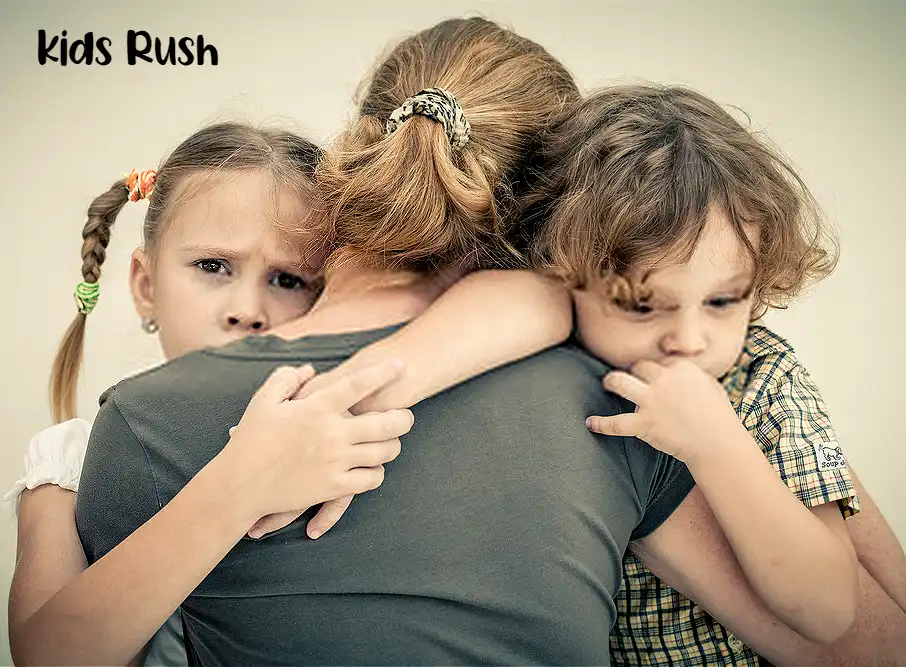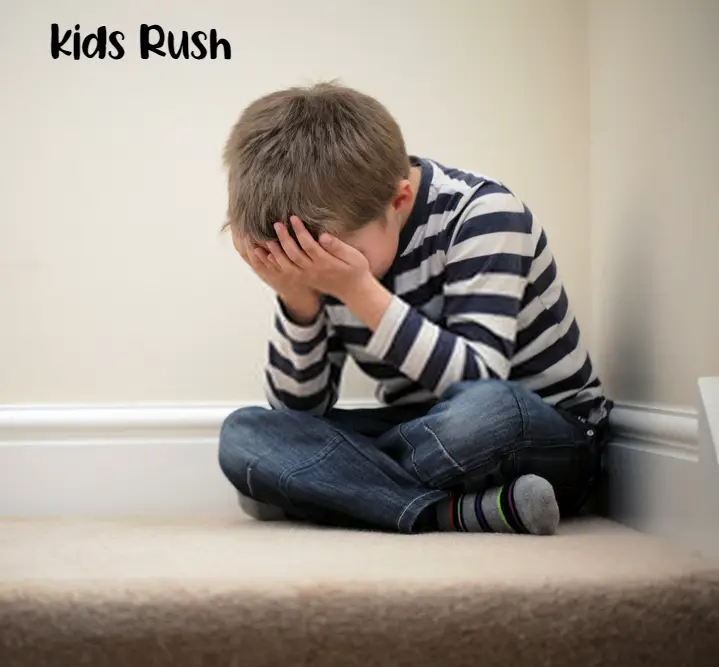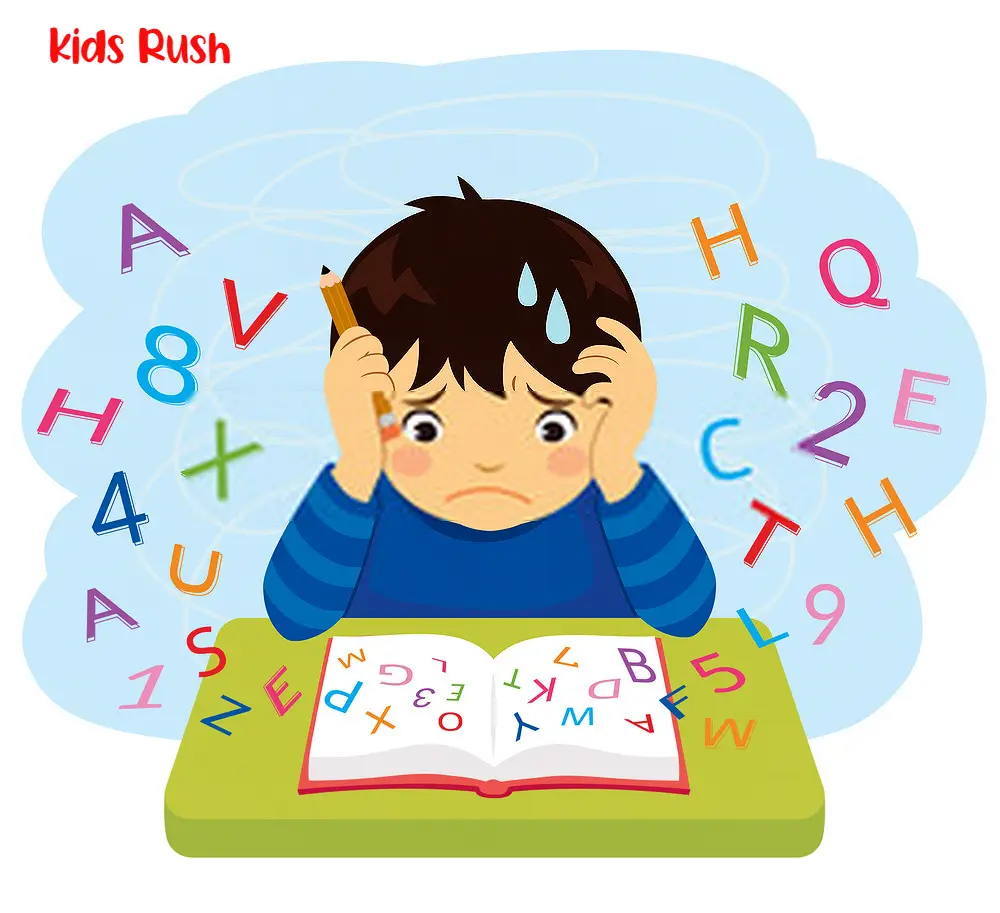When children are stressed or anxious, they become physically or behaviorally change. Many parents overlook the underlying issues that may be causing their child’s behavior because each child responds differently to stress based on their age, personality, and coping skills.
Children who experience childhood stress should be observed by parents and possible causes should be identified. The parents can usually help their children cope with stress and anxiety, but if the child has an anxiety disorder, professional help is recommended. [1] [2]
Anxiety symptoms in children
In addition, children may not realize they are anxious and may not be mature enough to express their real or imagined anxieties. Parents may not be aware whether their children are exhibiting symptoms of anxiety or a medical condition as a result of this.
Related: Depression in Children: Symptoms, Causes, and Treatment
Emotional or behavioral
Parents can be frustrated or confused by children’s behavior when anxious, but caregivers must recognize that anxiety can cause children to behave in unpredictable and confusing ways. Anxiety and stress can be manifested by behavioral signs including:
- feeling moody, being aggressive, having a short temper, or clingy
- Nail-biting Disorder
- Concentration problems
- Fears (such as those of the dark, being alone, or being away from home)
- Being in trouble at school
- Collecting seemingly insignificant objects
- Not wanting to go to school
- Being distant from friends and family Physical
Physical
Stress and anxiety can cause physical complaints as well. Among them are:
- The problem of bedwetting
- A stomachache or headache
- Appetite decreases or increases
- Physical symptoms that may occur
- Nightmares or sleep disorders
Considering if these symptoms usually occur before or after certain activities and whether one is affected by physical symptoms, such as fever, rash, or diarrhea, can help to identify an underlying medical condition.
Childhood Stress: Common Causes

Children who experience anxiety or stress due to something external, such as school problems, family changes, or conflict with a friend, may experience these feelings. In addition to external factors like academic pressure, or the desire to fit in with peers, a child can also experience anxiety from inside.
Children suffer from stress due to the following causes:
- Academic pressure: The desire to do well at school causes anxiety in many children. This is especially true for children with shortcomings or those terrified of making mistakes. [3]
- Big changes in the family: Moving, getting divorced, losing a family member, or adding a new sibling can cause your child to feel confused and anxious, shaking their sense of security. In this case, a new sibling can create feelings of anger or jealousy among a child. It is normal to feel alarmed, grief, and fear when a loved one passes away.
- Bullying: Many children suffer from bullying. Physical harm may result from subtle or obvious bullying. Students who are bullied often feel embarrassed, and fear calling attention to the weakness they perceive within themselves by telling their parents or teachers about the bullying.
- Catastrophic events on the news: The news can make children feel uncomfortable when they see natural disasters, terrorist attacks, or violent images. Seeing and hearing of terrible news events may make children worry about bad things happening to them or a loved one.
- Parental instability: Financial problems, problems in the family, and parental agitation may lead children to feel helpless, even if they really want to help.
- Popularity: The problem of separation anxiety affects young grade-schoolers frequently. Children want to fit in with other kids as they grow up; being popular and fitting in pressures them to become like their peers. When kids enter grade school, they often become involved in cliques and feel excluded.
- Overly-packed schedules: For children who need a break from routines from time to time, constantly running from one activity to the next can cause great stress.
- Scary movies or books: Children may also be distressed or anxious by fictional tales. Film and book scenes that contain frightening or violent scenes are often upsetting or frightening to children.
Some kids are more sensitive to media content than others, so be aware of what may upset your child, limit violence in the media, and keep movies, books, and videos age-appropriate.
Parents can read our article which can help them with Choosing The Best Parental Control Apps.
What You Can Do to Help Your Child to reduce stress and anxiety
Stress can be dealt with and responded to in healthy ways by your child with the right guidance and assistance. There are several ways that you can help your children reduce stress and anxiety.
At Home
- Set a routine for your home and create an atmosphere of relaxation. Families can prevent anxiety and relieve stress by enjoying a game night or dinner together. For more, you can read our article which describes how to entertain your children.
- Ensure your home is a safe, comfortable, and relaxing place to live.
- Keep an eye on what your child watches, plays, and reads.
Engage them
- Ensure that your child has the opportunity to take charge of situations in their life.
- Discuss any anticipated changes with your child and let him/her know what to expect. What will it mean for them if you will be moving to a new city for a new job, new school, and a new house?
- You can help your child succeed by involving him in social activities and sports.
Related: ADHD In Children: Causes, Symptoms, Diagnose And Treatment
Your Actions
- Healthily manage your stress by exercising and caring for yourself. The behaviors of parents are often mimicked by children.
- Unresolved stress can manifest in new symptoms and behaviors.
- Rather than being critical or solving problems for your child, learn to actually listen to them. You can help your child learn to solve problems causing them distress by providing guidance and explanations.
- Encouragement and affection are important.
- Encourage healthy self-esteem by using positive reinforcement and discipline methods.
If your child’s behavior doesn’t improve or if he/she seems more depressed, withdrawn, or unhappy, ask a healthcare professional, counselor, or therapist for help. An additional cause for concern is problems at school or in relationships with family or friends.
Related: Mindfulness exercises for children
A Word From Kids Rush
Anxiety affects too many children today. The younger the child, the less likely they will be able to explain their own anxiety.
It is possible that older children can understand what’s bothering them, but there is no guarantee that they will tell you about it. When you keep track of how your child is behaving, you’ll be able to catch problems before they negatively impact your child.
Article Sources


